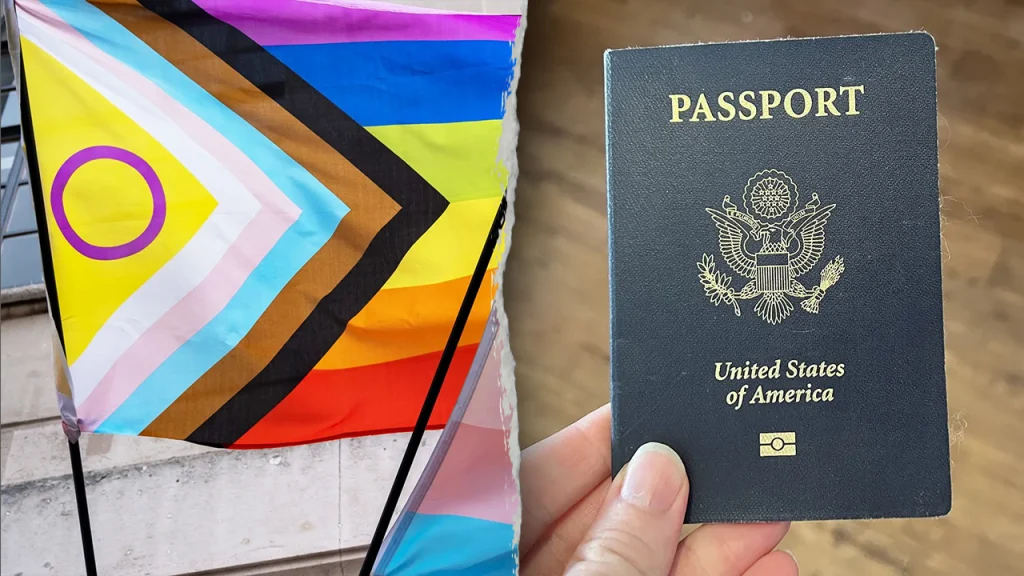Listen to the article
Supreme Court Allows State Department to Require Biological Sex on Passports
The Supreme Court has issued a 6-3 order allowing the State Department to require individuals to state their biological sex, rather than their gender identity, on new or renewed U.S. passports. The decision marks a significant victory for the Trump administration in its efforts to implement stricter policies affecting transgender individuals.
In an unsigned order, the conservative majority on the high court ruled that a lower court in Massachusetts had erred when it blocked the policy. The justices wrote, “Displaying passport holders’ sex at birth no more offends equal protection principles than displaying their country of birth—in both cases, the Government is merely attesting to a historical fact without subjecting anyone to differential treatment.”
The ruling temporarily lifts the injunction while the underlying case continues to work its way through the lower courts. The class-action lawsuit was brought by a dozen individuals who describe themselves as transgender, nonbinary, or intersex, and who argue that passports should “reflect the sex [people] live as and express, rather than the sex they were assigned at birth.”
All three liberal justices dissented from the majority opinion. Justice Ketanji Brown Jackson issued a pointed critique of her colleagues, writing that the majority “fails to spill any ink considering the plaintiffs, opting instead to intervene in the Government’s favor without equitable justification, and in a manner that permits harm to be inflicted on the most vulnerable party.”
Justice Jackson also noted that transgender people have been permitted to state their preferred gender on passports for more than three decades, suggesting the sudden policy reversal lacks sufficient justification.
The Trump administration’s policy represents a significant shift from the previous Biden administration, which had allowed passport applicants to select an “X” gender marker instead of the traditional “M” or “F” options. Solicitor General John Sauer, representing President Trump, argued in court filings that passports communicate information to foreign governments, and private citizens cannot force the president to communicate in ways that contradict his foreign policy preferences and what the administration considers “scientific reality.”
The passport requirement is part of a broader series of executive orders issued by President Trump upon taking office earlier this year. These orders aim to require transgender individuals to identify by their biological sex in various contexts, including gender-exclusive sports and military service.
The case has moved through what’s sometimes called the “shadow docket” or “emergency docket,” where the Supreme Court can issue temporary orders on time-sensitive matters without full briefing or oral argument. Justice Jackson specifically criticized what she described as a “routine” of the current court siding with the Trump administration on these emergency matters.
Attorney General Pam Bondi celebrated the decision on social media, noting that it represents one of roughly two dozen wins the Department of Justice has secured before the Supreme Court on the emergency docket this year. “Today’s stay allows the government to require citizens to list their biological sex on their passport,” Bondi stated. “In other words: there are two sexes, and our attorneys will continue fighting for that simple truth.”
Advocacy groups for transgender rights have expressed concern about the ruling’s implications, particularly given the long-standing practice of accommodating gender identity on federal identification documents. The case will continue through the lower courts, where the full merits of the arguments will be examined in greater detail.
The decision reflects the growing tension between the conservative-majority Supreme Court and the Biden administration’s policies on gender identity, with the court increasingly receptive to challenges against regulations protecting transgender rights.
Fact Checker
Verify the accuracy of this article using The Disinformation Commission analysis and real-time sources.




8 Comments
This is a complex and sensitive topic. I appreciate the Court taking the time to carefully consider the arguments on both sides before issuing their decision.
This is a contentious issue with strong feelings on both sides. I’d encourage everyone to approach it with empathy and an open mind as the legal system works through the details.
As someone interested in legal and civil rights issues, I’ll be following this case closely. Curious to hear others’ perspectives on the Court’s reasoning and potential impacts.
While I respect the Court’s decision, I’m concerned about the potential impacts on transgender individuals. Hopefully there will be further legal and policy discussions to protect everyone’s rights and dignity.
I agree, this is a complex issue without easy answers. Reasonable people can disagree, but the focus should be on balancing individual rights and practical considerations.
While I understand the Court’s rationale, I’m worried this ruling could set a precedent that undermines transgender individuals’ ability to obtain accurate identity documents. Hopefully there are still avenues for further legal challenges.
This ruling highlights the ongoing debates around gender identity and government policies. I’m curious to see how this case progresses and what the broader implications may be.
Valid points. These issues often involve nuanced legal and social considerations. Constructive dialogue is important, even when people hold different views.